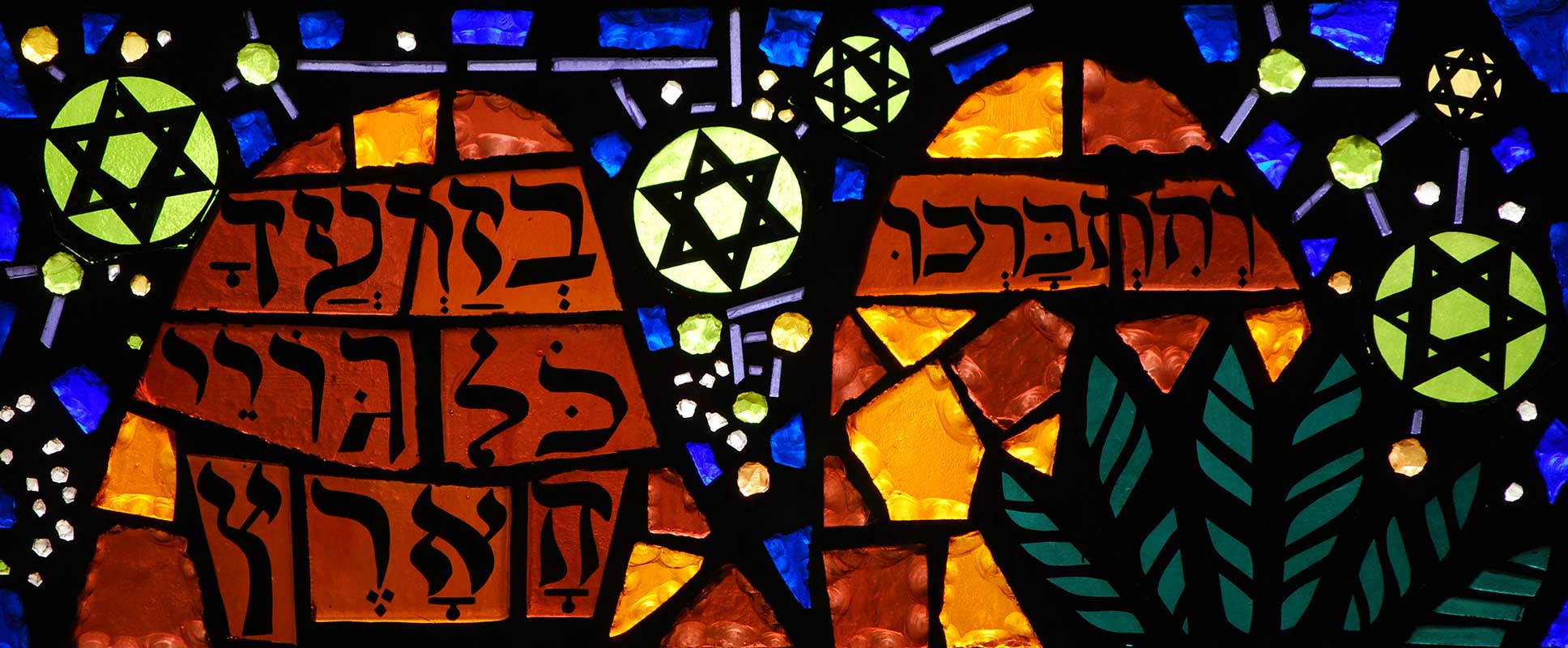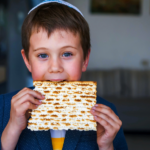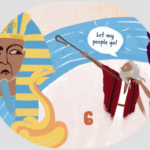
Note: Passover preparations will start a day early this year (5785/2025), on Thursday, April 10, because Erev Passover is on Shabbat.
While much of the celebration of Passover occurs within the home, Har Zion can also be an important part of your Passover celebration.
Passover Preparations:
 Selling your chametz: You can set aside the chametz in your home that you can’t use before Passover begins, and transfer its ownership to Rabbi Glick (who will “sell it” to a non-Jew for the duration of Passover). Click here.
Selling your chametz: You can set aside the chametz in your home that you can’t use before Passover begins, and transfer its ownership to Rabbi Glick (who will “sell it” to a non-Jew for the duration of Passover). Click here.
Seders and Other Passover Meals:
Passover begins with a ritual meal, or Seder—two Seders outside of Israel—which recounts the events of the Exodus from Egypt. Seder means order, because the Seder meal follows a specific order.
 1st Seder: Passover begins on the evening of Saturday, April 12, with the 1st Seder. Can you host additional people at the 1st seder in your home—or—do you want to find a 1st seder to attend? For either, please fill out the 1st Seder Host/Guest Request by Friday, April 4. (We will take into consideration the hosts’ and guests’ kosher/allergy/dietary preferences.)
1st Seder: Passover begins on the evening of Saturday, April 12, with the 1st Seder. Can you host additional people at the 1st seder in your home—or—do you want to find a 1st seder to attend? For either, please fill out the 1st Seder Host/Guest Request by Friday, April 4. (We will take into consideration the hosts’ and guests’ kosher/allergy/dietary preferences.)
Har Zion Annual 2nd Seder: On Sunday, April 13, the Passover evening service is at 7pm, followed by the Seder at 7:30pm. Both are in person as well as streamed; please join us! Registration is required; last day to register is Tuesday, April 8.
Kosher-for-Passover Shabbat Meal: Join us for Kabbalat Shabbat services on Friday, April 25, beginning at 5:30pm, and stay after to share an in-person only, kosher-for-Passover Shabbat meal. Registration is required.
For details, see Passover Food and Seders.
Passover Services:
Ma’ariv evening service: 6:30pm on Saturday, April 12, and 6pm on Sunday, April 13.
Passover morning services: 10am on Sunday, April 13, Monday, April 14, Saturday, April 19, and Sunday, April 20. These 10am services take place of minyan (Sunday and Monday) or are included in the Shabbat service (Saturday).
See the timeline for information on the Fast of the Firstborn (Thursday, April 10).
 During Passover, Jews recall how our ancestors were lead out of slavery in Egypt by Moses. To convince Pharaoh to allow the Jews to leave Egypt, God inflicts ten plagues of increasing severity on Egypt, with the final and most devastating being the death of the firstborn. Obeying God’s command to mark their doorposts with lamb’s blood allowed the Angel of God to “pass over” the Jew’s homes to spare their firstborn sons.
During Passover, Jews recall how our ancestors were lead out of slavery in Egypt by Moses. To convince Pharaoh to allow the Jews to leave Egypt, God inflicts ten plagues of increasing severity on Egypt, with the final and most devastating being the death of the firstborn. Obeying God’s command to mark their doorposts with lamb’s blood allowed the Angel of God to “pass over” the Jew’s homes to spare their firstborn sons.
After the night of the plague of the firstborn, Pharaoh sent for Moses and his brother Aaron, telling them that the Jews were free to leave Israel.
Today, during eight day holiday (seven in Israel) of Passover, the Jewish people remember this time as if they are experiencing it themselves. Jews will prepare their homes for the holiday by removing all chametz—products made with leavened grains, barley, oats, rye, spelt, and wheat.
For a day-to-day timeline of Passover services and events in 5785/2025 at Har Zion, click here. There is also a one page summary suitable for printing: click here.
Do you have questions? Do you want to learn more?
Passover customs and traditions are fascinating subjects!
The United Synagogue of Conservative Judaism (USCJ)’s website:
has a collection of information explaining Conservative Judaism and how it is observed in the United States. Its pages on Passover can answer questions and give you new insights.
Passover 101
- Passover resources from, or suggested by, the USCJ:
- Search for Hametz Printable
- Netilat Yadayim Printable (Handwashing)
- PJ Library Passover Printables
- Exploring Judaism Passover Articles
- Jewish Educators Assembly – Chocolate Seder Haggadah
- Jewish Grandparents Network: Passover Resources
- Kashering for Pesach (a playlist of YouTube videos)
- 18Doors Passover Cheatsheet – The information on 18Doors is designed for “interfaith couples and families in formation,” but it has much information that can be useful for everyone!
- recustom.com/haggadot.com (a create-your-own Haggadah formerly haggadot.com).
- thekitchn.com (a cooking website; please excuse the ads).
- Star-K Kosher list of products that do not require Kosher for Passover Certification: Click here.
- The Rabbinical Assembly’s Kashrut Subcommittee Passover Guides for 5785: Click here.
- Ashkenazi Jews traditionally did not eat legumes, rice, seeds, and corn during Passover, but the Rabbinical Assembly—an international group of Conservative rabbis — has ruled that it is in okay to add rice, beans, and corn and other kitniyot to the Passover table.